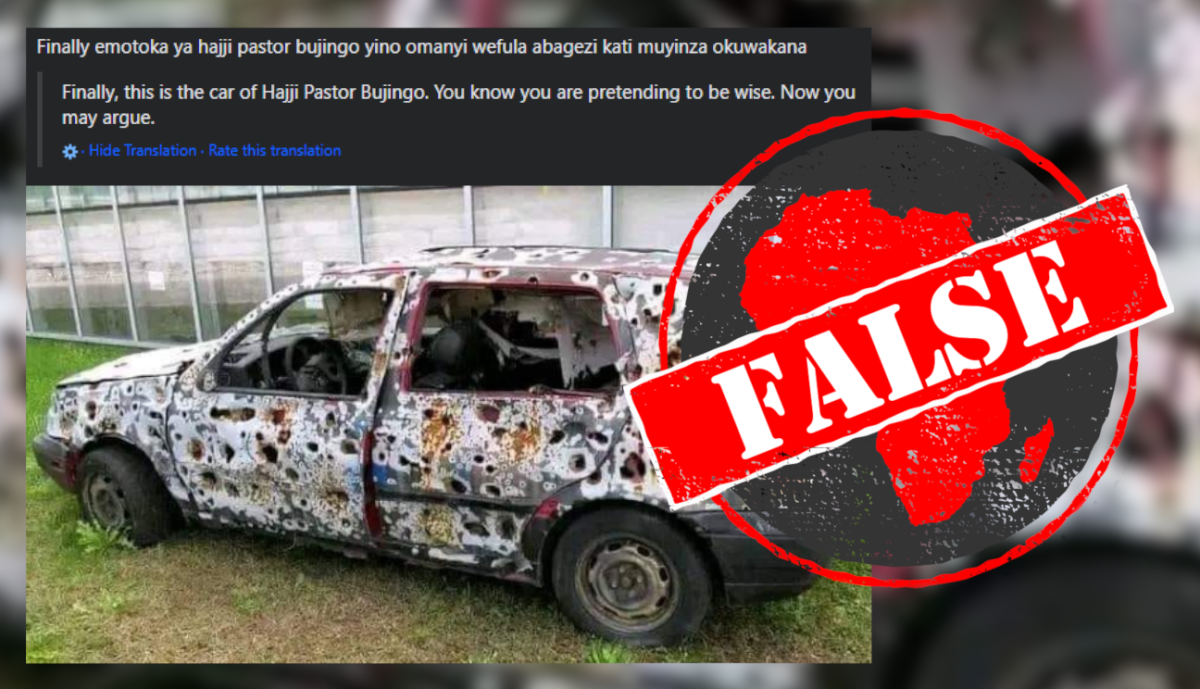IN SHORT: A photo of an old car riddled with bullets was taken in the US city of Chicago in 2018 to raise awareness of gun violence. It does not show the car of Ugandan pastor Aloysius Bugingo after a shooting in January 2024.
A photo has been posted on Facebook, with the claim it shows the vehicle of Ugandan pastor Aloysius Bugingo after a shooting.
Bugingo is in business. He and his ex-wife, Teddy Naluswa, founded the House of Prayer Ministry International and later launched Salt FM and Salt Television.
Bugingo has had public spats with many other pastors in Kampala, Uganda’s capital. In 2019, he was named “the most influential born-again preacher” by the East Africa Book of Records.
The controversial pastor is also a strong supporter of Uganda's ruling party.
The photo shows a car riddled with bullets, with users claiming it was the vehicle Bugingo was travelling in when gunmen attacked them. This led to the tragic death of his bodyguard on 2 January 2024.
The post’s caption reads: “Finally emotoka ya Hajji pastor bujingo yino omanyi wefula abagezi kati muyinza okuwakana.”
This translates to: “Finally Hajji Pastor Bujingo’s car is this, you know you are pretending to be smart now you can argue.”
The same claim has also been published here.
But does this photo show Bugingo's car? We checked.

Photo dates back to 2018
A Google reverse search of the photo revealed that it first appeared online in 2018. The bullet-riddled car was on display in Chicago, a city in the United States, as part of an effort to show how destructive guns can be.
Viktor Mitic, a Toronto artist, reportedly fired more than 6,000 rounds into an old coupe to raise awareness of gun violence.
According to media reports, Bugingo's vehicle was taken to the Kibuli CID headquarters for investigation on 5 January 2024.
The vehicle in the Ugandan media reports is different from the one circulating on Facebook.
Republish our content for free
For publishers: what to do if your post is rated false
A fact-checker has rated your Facebook or Instagram post as “false”, “altered”, “partly false” or “missing context”. This could have serious consequences. What do you do?
Click on our guide for the steps you should follow.
Publishers guideAfrica Check teams up with Facebook
Africa Check is a partner in Meta's third-party fact-checking programme to help stop the spread of false information on social media.
The content we rate as “false” will be downgraded on Facebook and Instagram. This means fewer people will see it.
You can also help identify false information on Facebook. This guide explains how.


Add new comment